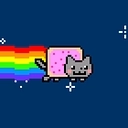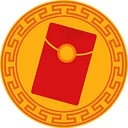What is CAT20 Protocol?
CAT20 is a new standard for creating tokens on the Bitcoin network, very similar to BRC-20. It allows users to create, issue and trade custom tokens on the Bitcoin blockchain. The name CAT20 comes from “Cat”, which may reflect the community’s love for this emerging token standard or see it as a “variant” of BRC-20.
Differences and connections between CAT20 and BRC-20
Similarities:
Bitcoin native: CAT20, like BRC-20, is built directly on the Bitcoin blockchain.
Custom tokens: Both standards allow users to create tokens with custom properties.
Inscription mechanism: Both standards utilize Bitcoin’s inscription function to embed token information into Bitcoin transactions.
Differences:
Communities and ecosystems: CAT20 is mainly used in specific communities and ecosystems, while BRC-20 is more widely used.
Technical details: Although the two are similar in concept, there may be differences in the specific technical implementation details.
Application scenarios of CAT20
Community tokens: As governance tokens or reward tokens for the community.
NFT: Represents non-fungible tokens such as digital artworks and game items.
Utility tokens: Provide access to specific services or products.
Advantages of CAT20
Bitcoin security: Inherits the security of Bitcoin and is highly tamper-proof.
Flexibility: Various types of tokens can be created to meet different needs.
Community-driven: Maintained and developed by the community, with high community participation.
Precautions
Emerging technology: As an emerging technology, CAT20 is still in the development stage and has certain risks.
Regulatory uncertainty: The regulatory policy for cryptocurrencies is not yet fully clear, and there may be regulatory risks.
Technical complexity: Creating and using CAT20 tokens requires certain technical knowledge.
Summary
CAT20 is a variant of BRC-20, which brings new possibilities to the Bitcoin ecosystem. Through CAT20, users can create a variety of tokens to enrich the application scenarios of Bitcoin. However, when participating in CAT20-related activities, it is important to be cautious and understand the risks involved.
Covenant Attested Token (CAT) Protocol
We propose a novel UTXO-based token protocol on Bitcoin, called Covenant Attested Token (CAT) Protocol. It is miner validated and uses smart contracts, specifically covenants, to manage token mints and transfers. Compared with all existing token protocols on Bitcoin, it is solely enforced by Bitcoin Script at Layer 1 and has the following features.
- No indexer needed: The ruleset of the token is guaranteed by the Bitcoin consensus. Both the token data and logic reside on chain. It does not rely on any off-chain third party, such as an indexer, to operate. There is no risk of indexer inconsistency and CAT tokens inherit native bitcoin’s Proof of Work security.
- Modular: Since CAT tokens can be verified in Script, they can be used in other smart contracts and be combined into more complex and interconnected decentralized applications, such as Automated Market Makers (AMM), lending, and staking. The modularity and composability of CAT tokens offer a powerful and versatile new building block for expanding Bitcoin’s range of applications.
- Programmable minting: Token minting rule is not enforced by indexers, but by minting smart contracts. These customizable and flexible contracts allow token issuers to specify arbitrary minting rules, including open mint. Over-minting transactions would be rejected directly by the network, not at an indexer, and not mined.
- Cross-chain interoperable: CAT protocol allows trustless bridging of assets between different blockchains, enabling applications to operate across multiple blockchains.
- SPV-compatible: CAT tokens support Simplified Payment Verification (SPV). Light clients (like mobile phones) can independently verify the authenticity of tokens, without trusting any central server. Similar to Bitcoin, a token transaction that is sufficiently deep in the blockchain can be considered valid by light clients.
CAT protocol supports both fungible tokens (called CAT20 standard) and non-fungible tokens (called CAT721 standard). The techniques developed here are general purpose and can be applied in use cases beyond tokens.

















































